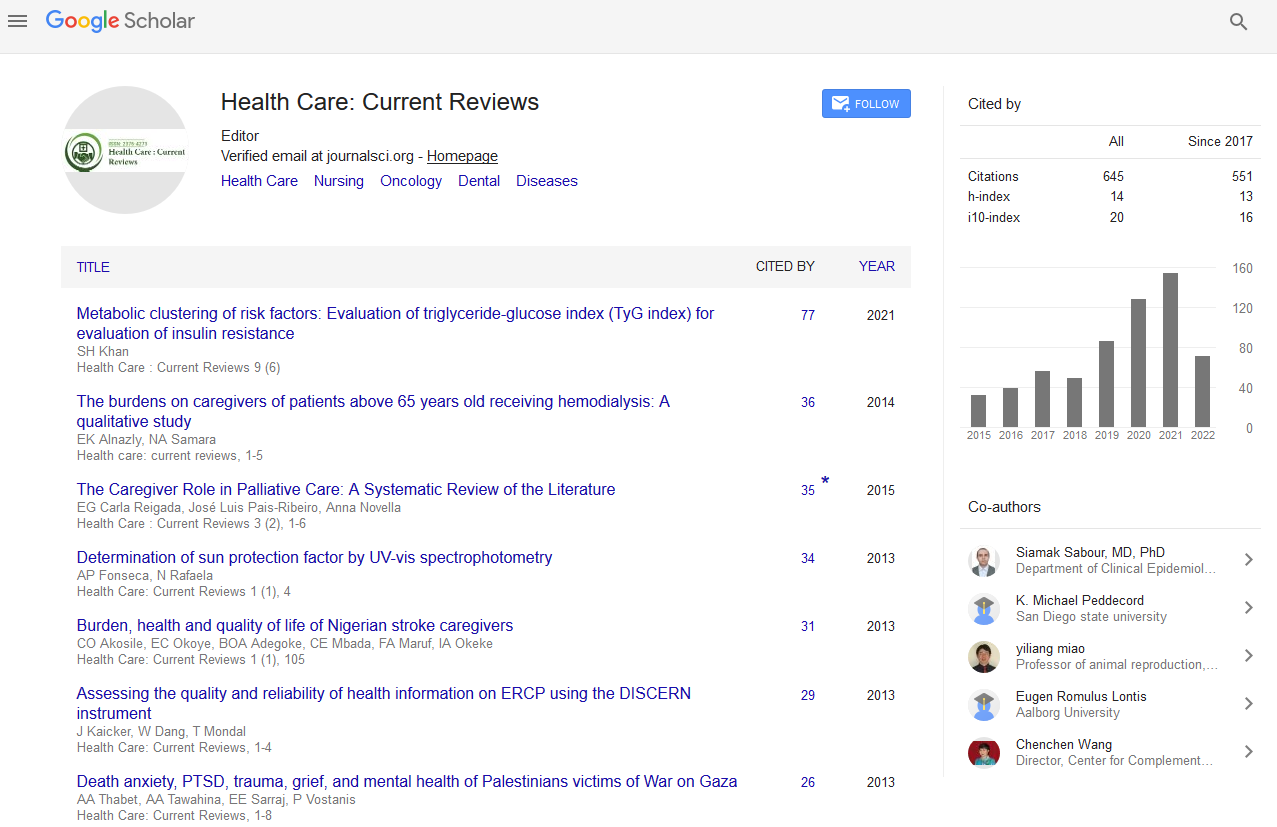PMC/PubMed Indexed Articles
Indexed In
- Open J Gate
- Academic Keys
- RefSeek
- Hamdard University
- EBSCO A-Z
- Publons
- Geneva Foundation for Medical Education and Research
- Google Scholar
Useful Links
Share This Page
Journal Flyer

Open Access Journals
- Agri and Aquaculture
- Biochemistry
- Bioinformatics & Systems Biology
- Business & Management
- Chemistry
- Clinical Sciences
- Engineering
- Food & Nutrition
- General Science
- Genetics & Molecular Biology
- Immunology & Microbiology
- Medical Sciences
- Neuroscience & Psychology
- Nursing & Health Care
- Pharmaceutical Sciences
Social participation in Canada: Desire to participate and restrictions
Euro Health Care and Fitness Summit
September 01-03, 2015 Valencia, Spain
Mélanie Levasseur
Université de Sherbrooke, Canada
Keynote: Health Care: Current Reviews
Abstract:
Defined as involvement of the person in activities that provide interactions with others in the community, social participation is a major determinant of health in older adults that requires innovative interventions. Among such interventions, the creations of favorable environments based on older adult�??s preferences are increasingly promising. However, little is known about desire to participate and restrictions in older adults. This study aimed to describe and compare desire to participate and reasons for restrictions in social participation among older Canadians. Secondary analysis of aggregated data from the cross-sectional 2008-2009 Canadian Community Health Survey involved 30,865 Canadians aged 45 and over. Quebecers participated least, while residents of the Prairies were the most involved in community activities (11.9 and 13.8). More Canadians aged 45-64 wanted to participate more in community activities than those aged 65 and over (36.8% vs. 23.9%), and women more than men (34.3% vs. 30.9%). However, environmental barriers, such as respondents not wanting to go alone, cost and transportation problems, restricted women more than men in both age groups. For women aged 65 and over, location inaccessibility (1.7% vs. 0.7%) and the unavailability of activities (8.0% vs. 5.4%) restricted their participation. The unavailability of activities was a barrier for 10% of women in the Atlantic region and Prairies, and also restricted older Canadians who lived in non-census metropolitan areas (non-CMAs) more than in CMAs (8.0% vs. 4.8%). Further research examining older Canadians�?? locations in greater details and their social participation is needed to foster the creation of favorable environments.
Biography :
Mélanie Levasseur completed her Bachelor’s degree in Occupational Therapy at McGill University, a Master and Doctorate in Clinical research at the Université de Sherbrooke and a Post-doctoral fellowship in health promotion at the Institute of Public Health Research, Université de Montréal. Her research focuses on the social integration and participation of older people living at home, and interventions to promote health, including awareness of safe driving. She is a Fonds de la recherche en santé du Québec (FRQ-S) Junior 1 Researcher (#26815). She has published more than 45 papers in reputed journals and has been guest speaker in up to 45 events.


